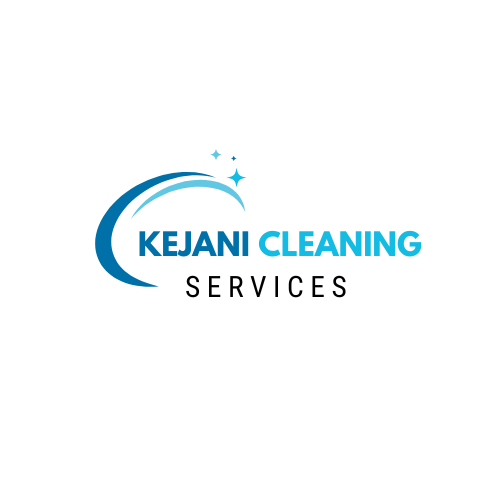In today’s fast-paced business environment, maintaining a clean and organized office space is not merely a matter of aesthetics but a crucial component for enhancing employees’ mental health. The correlation between a pristine workplace and the psychological well-being of its occupants is substantial. A well-maintained office can significantly boost morale, increase productivity, and foster a positive work atmosphere. Below, we delve into the numerous benefits of office cleaning on mental health, highlighting why every organization should prioritize cleanliness.
Enhanced Productivity through a Clean Environment
A clean office is synonymous with a productive one. Clutter and mess can lead to distractions and inefficiencies. Studies have shown that employees working in clean environments are more focused and less likely to procrastinate. The absence of clutter allows for clearer thinking and better task management, which is essential for maintaining high levels of productivity. When employees are not overwhelmed by their surroundings, they can devote their full attention to their work, leading to improved performance and job satisfaction.
Reduced Stress and Anxiety
An untidy workspace can contribute to elevated stress levels and anxiety. Visual clutter and disorganization can overwhelm the brain, leading to a sense of chaos and unease. By contrast, a clean and orderly environment promotes calmness and a sense of control. Regular office cleaning can significantly reduce stress triggers, providing employees with a serene and organized space to perform their duties. This reduction in stress not only enhances mental well-being but also fosters a healthier work-life balance.
Improved Physical Health
The physical health of employees is intrinsically linked to their mental health. A clean office reduces the spread of germs and illnesses, which can lead to fewer sick days and a healthier workforce. Regular disinfection of surfaces, proper waste disposal, and ensuring good air quality through ventilation systems are vital practices. When employees are physically healthy, their mental health also benefits, creating a virtuous cycle of well-being and productivity.
Boosted Morale and Job Satisfaction
Employees take pride in their workspaces. A clean office environment sends a message that the employer values their well-being and comfort. This appreciation can significantly boost morale and job satisfaction. When employees feel valued, their motivation and engagement levels rise, leading to a more positive and collaborative work environment. High morale also translates to lower turnover rates and a stronger sense of team cohesion.
Enhanced Focus and Cognitive Function
Mental clarity is crucial for effective work performance. A clean and organized workspace can significantly enhance cognitive function by reducing distractions and enabling better concentration. Employees can focus more effectively on their tasks, leading to higher quality work and innovation. The clear physical space mirrors a clear mental space, allowing for better problem-solving and creativity.
Reduction of Sick Leave and Absenteeism
A hygienic office environment contributes to the overall health of employees, which directly impacts attendance. By maintaining cleanliness and hygiene standards, the spread of contagious diseases can be minimized. This proactive approach results in fewer instances of absenteeism due to illness, ensuring that the workforce remains robust and operational. Regular cleaning routines, including disinfection of commonly touched surfaces, can drastically reduce the incidence of sickness in the workplace.
Professional Image and Client Perception
A clean office is not only beneficial for employees but also for clients and visitors. First impressions are lasting, and a tidy, well-maintained office reflects professionalism and attention to detail. Clients and business partners who visit a clean office are more likely to have a positive perception of the company, which can lead to better business relationships and opportunities. Maintaining a pristine office environment is therefore an investment in the company’s reputation and success.
Promotes Organizational Skills
A culture of cleanliness and organization can encourage employees to adopt better organizational habits. When the office environment is well-kept, it sets a standard for employees to maintain their personal workspaces in a similar manner. This habit can lead to improved workflow efficiency, as employees are better able to locate documents and tools they need, reducing time wasted on searching for misplaced items. Such organizational skills are beneficial both professionally and personally, contributing to overall employee development.
Environmental Benefits and Sustainability
Implementing green cleaning practices not only supports employee health but also promotes environmental sustainability. Using eco-friendly cleaning products and methods reduces the exposure to harmful chemicals and pollutants, creating a safer office environment. Additionally, sustainable cleaning practices can enhance the company’s corporate social responsibility profile, attracting environmentally conscious clients and employees. A commitment to sustainability demonstrates a company’s dedication to the broader well-being of both people and the planet.
Psychological Comfort and Workplace Harmony
Lastly, a clean office contributes to the psychological comfort of employees. A tidy and orderly workspace can significantly reduce feelings of discomfort and agitation. When employees are comfortable in their surroundings, it promotes a sense of harmony and cooperation among the team. This harmonious environment is conducive to better teamwork, communication, and overall workplace satisfaction.
In conclusion, the benefits of office cleaning extend far beyond mere aesthetics. A clean office environment plays a pivotal role in enhancing mental health, boosting productivity, reducing stress, and fostering a positive and professional atmosphere. By prioritizing cleanliness, organizations can ensure a healthier, happier, and more efficient workforce.


0 Comments